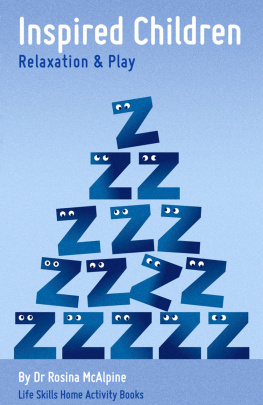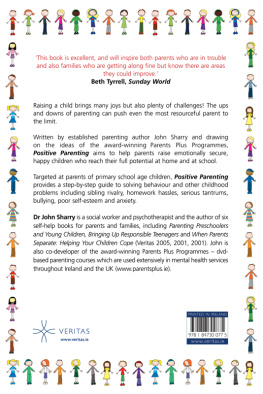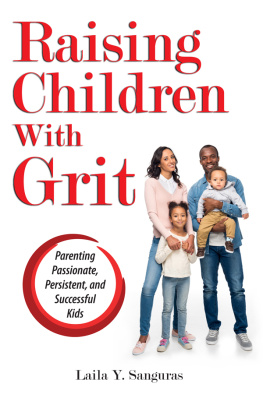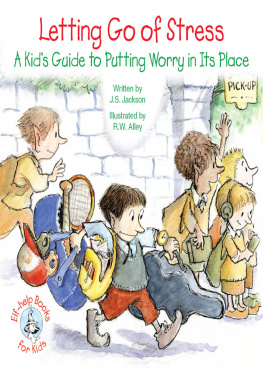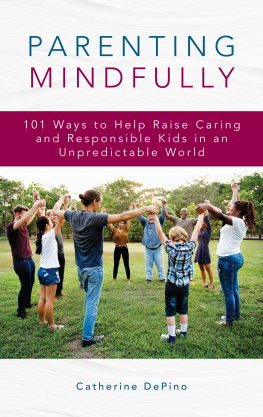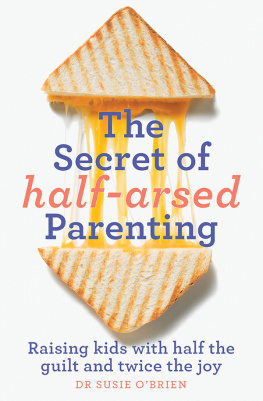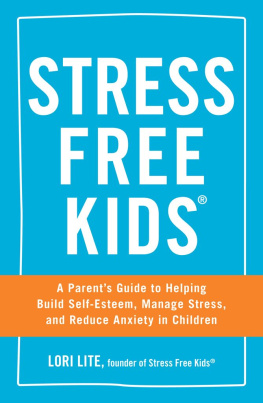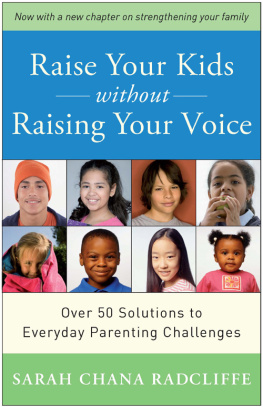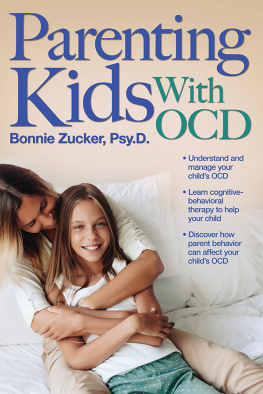First published 2014
Exisle Publishing Pty Ltd
Moonrising, Narone Creek Road, Wollombi, NSW 2325, Australia
P.O. Box 60490, Titirangi, Auckland 0642, New Zealand
www.exislepublishing.com
Copyright 2014 in text: Shelley Davidow
Shelley Davidow asserts the moral right to be identified as the author of this work.
All rights reserved. Except for short extracts for the purpose of review, no part of this book may be reproduced, stored in a retrieval system or transmitted in any form or by any means, whether electronic, mechanical, photocopying, recording or otherwise, without prior written permission from the publisher.
A CiP record for this book is available from the National Library of New Zealand
epub ISBN 978 1 77559 135 1
Design and typesetting by Big Cat Design
Illustration on page 44 courtesy of the Institute of HeartMath
Illustrations on pages vivii, 9, 25 and 153 courtesy of Shutterstock
Disclaimer
While this book is intended as a general information resource and all care has been taken in compiling the contents, this book does not take account of individual circumstances and is not a substitute for professional advice. Neither the author nor the publisher and their distributors can be held responsible for any loss, claim or action that may arise from reliance on the information contained in this book.
Shelley Davidow is a teacher, author and trained facilitator in Restorative Practice. She has taught students aged from five to eighty and runs workshops nationally and internationally on the impact and management of stress at home, in the workplace and in the classroom. With her focus on social and emotional health, she has worked in schools across the US and Australia, conducting readings and workshops and facilitating discussions with young people on the many issues they confront. An award-winning author of over thirty-five books for children, teens and adults, her work deals with a wide range of social issues and is used in schools all over the world.
Praise for Raising Stress-Proof Kids:
Raising Stress-Proof Kidsprovides eye-opening insight into how the unhealthy and unnecessary stresses of our educational systems, as well as outdated perspectives on parenting, are affecting our children.
It offers practical advice on how we can significantly and positively impact the lives of our children as they move through developmental phases and become mature, self-regulated and composed beings ready to succeed in our increasingly complex world.
ROLLIN MCCRATY PHD, INSTITUTE OF HEARTMATH, CALIFORNIA
For Paul and Tim, with love
INTRODUCTION
What we are teaches the child far more than what we say, so we must be what we want our children to become.
Joseph Chilton Pearce, Teaching Children to Love
Heres a stressful thought: an estimated 16.7 million people worldwide die every year as a result of cardiovascular disease. Thats a staggering 43,835 people every single day who were children just a few decades ago. Heart disease kills more people in the developed world than any other cause, and we know that this tragedy doesnt happen overnight. Slowly, over time, hearts become diseased.
If that thought isnt enough to elevate blood pressure, heres another nerve-racking fact: stress (emotional and psychological) affects our hearts and nervous systems in complex and far-reaching ways. And it starts when were young. Sometimes it begins before were even born. Its part of our lives and its often invisible.
Stress is rising alarmingly in our children, both at school and at home. Across the world, hearts are racing, faces are paleand most of the time were unaware that many of our children are chronically stressed. Teen suicide as a result of stress is on the rise and premature adult death as a result of the rising incidence of heart disease is climbing to greater heights every year. Stress, according to research done at VU University in the Netherlands, increases a persons risk of death five-fold.
The link between stress and heart disease is a well-studied one, and an obvious one in certain respects, since stress negatively impacts our cardiovascular system by making our hearts race and flooding our systems with stress hormones. This is bad news for our health in the long term.
In 2006, a study at University College, London, involving more than 10,000 civil servants, found that adults with chronic work stress had double the odds of developing metabolic syndrome, a leading factor in diabetes and heart disease, than adults who werent stressed. This was after controlling for other elements. Significantly, lead researcher Tarani Chandola said: The study provides evidence for the biological plausibility of psycho-social stress mechanisms linking stressors from everyday life with heart disease.
As the parents of todays children, we hold the future of billions of adults in our hands. Preventing our children from the long-term effects of stress is essential for their health and survival. But prevention has to begin early. Were a society with vast amounts of information at our fingertips and yet somehow we have to move from being a population that is well informed to a population that acts on that information, preventatively, if we want our childrens generation to outlive ours.
Heres a thought to counter those preceding images of a world stressed to death: our children are not compelled to follow in our footsteps. The effects of stress, although pervasive, are eminently and, I believe, absolutely preventable.
This book is about and for all our childrenour babies, our toddlers, our seven-year-olds, our teensand the adults they will become. Its time we did something about the stresses our children are facing and the inadvertent role we often play in causing it. Pushing our children towards excellence, reacting stressfully to their behaviour and fearing for their futures often precipitates the very opposite outcome to the one we intend. The solutions are within our reach if we have the perseverance to make some radical changes in the ways in which we parent and educate.
As parents, we know, of course, that the children of today are the adults of tomorrow, and that the adults today who suffer the effects of a breathlessly fast-paced, competitive and stressful lifestyle with all its ensuing health issues were yesterdays children. When we hold our newborn babies in our arms, our most intense desire is to protect and care for them. We wouldnt dream of letting them go cold or hungry, nor could we stand to cause them pain or stress. When they cry, we comfort them. The earliest days of life are vulnerable and, as a society, we mostly understand that.
And then our children grow. We move them out into the world and gradually we stop listening to what their emotions and bodies are often telling us. We grow deaf to their demands, forget about how their environments and the adults around them impact their wellbeing, and we allow them to be socialised in what anyone would call a tough world. We believe at some intrinsic level that stress is an ordinary, even necessary part of living in the world. In fact, many of us have come to take for granted that the sooner our children learn to toughen up, the better their chances of survival will be in this harsh and unforgiving world. In fact, this is the biggest fallacy.
At some point, our children may begin to let us knowoften in fairly dramatic waysthat they arent happy; that somehow they are stressed, overwhelmed and unable to cope. Sometimes they arent able to toughen up the way we expect them to do. This manifests as behaviour disorders, eating disorders, self-harm, withdrawal, learning disabilities, depression, and all the social and academic problems we can so easily identify in our homes or in any single school classroom today. Its not news that the fast-paced world in which our children live is vastly different from the environment of the past. And the struggles our children face are new and difficult.


